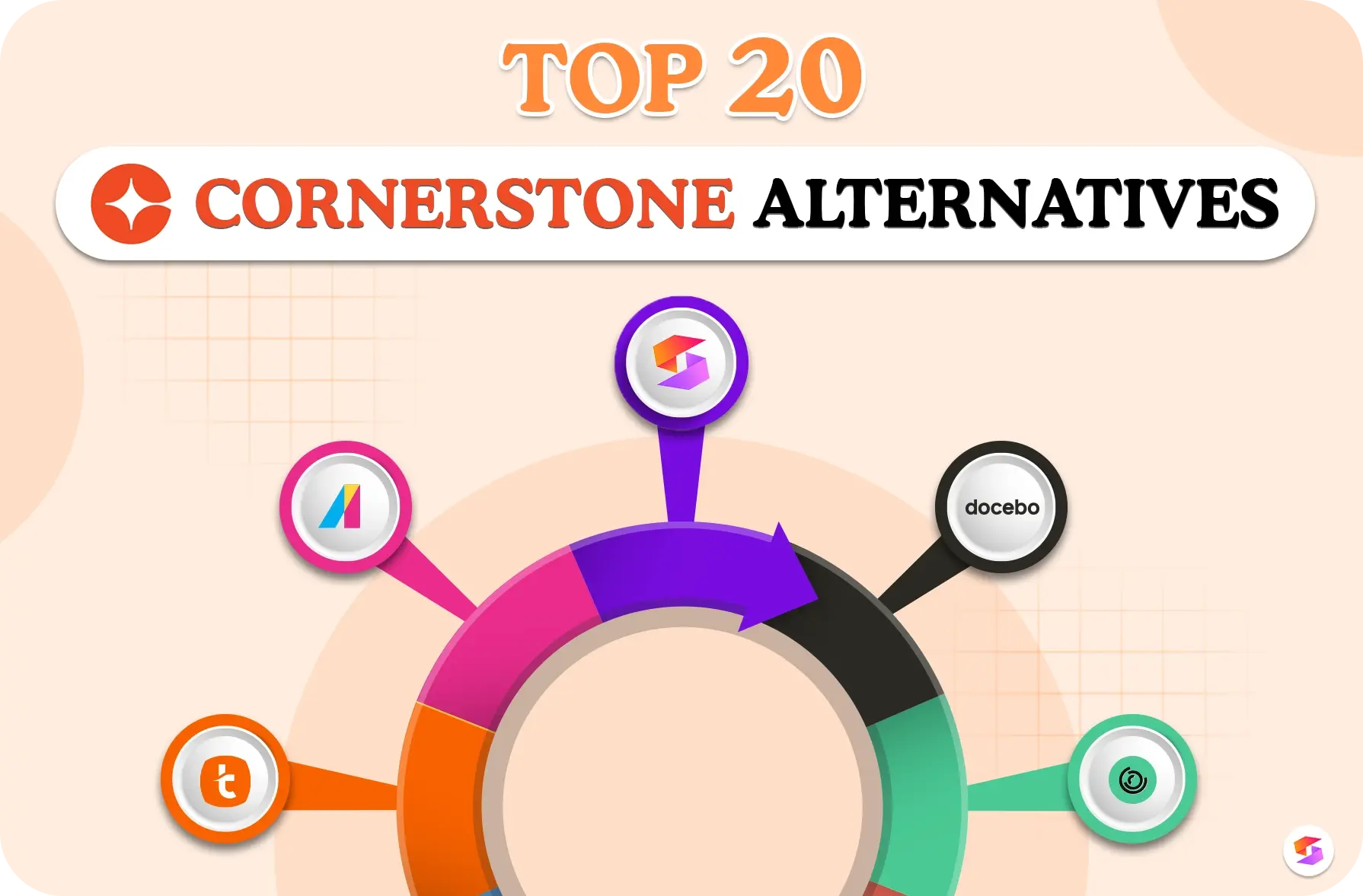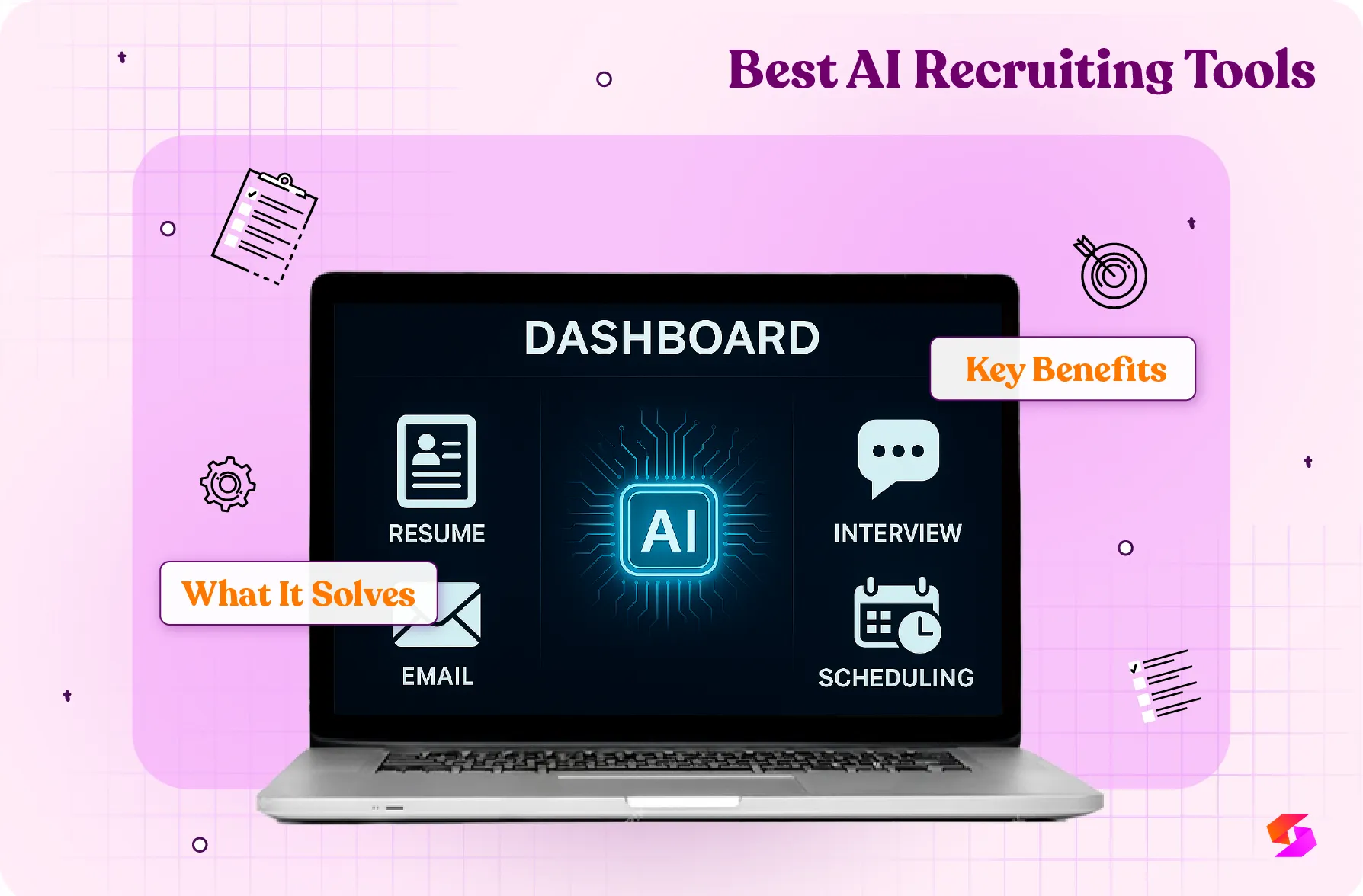A traditional hiring practice that focused more on a degree, experience, or recommendations is failing to provide qualified candidates. So, what’s the solution? Experts in the recruitment domain have realized that skill-based hiring might just be the answer.
That being said, the global job market is at a crossroads where for every job role there are multiple applicants, but only a minute percentage are skilled enough to execute it. In other words, the gap between qualified candidates and job applicants is troubling hiring managers to zero in on top talent efficiently. In fact, it’s predicted that by 2030, the global talent shortage can expand to 85 million people. It’s evident that attracting top talent is only going to get tougher with time, and adapting to a modern skill-based hiring approach is the only way to tackle inefficiency and bring sustainability to an organization's success.
With that in mind, this blog breaks down the best way to develop and implement a skill-based hiring strategy.
Why Is Skill-Based Hiring Important?
A skill-based hiring approach focuses on selecting talent based on their skills and competence rather than factors like past experience or academic background. For a long time, credentials have been the go-to parameters for recruiters to select or reject an applicant. Filtering based on years of experience or certification/degree in a certain field was a primary indicator in the traditional hiring process.
However, a process like that is not productive, eliminating qualified candidates from the pool instantly. Modern recruiters are realizing that such credentials are not the best indicators of a candidate’s proficiency to do the job. Skill-based hiring practices have taken over as a proven method to hire top candidates in a market with a talent shortage.
Top Benefits of Skills-Based Hiring
Employers are embracing skills-based hiring because of its efficiency in finding candidates who are right to the tee for the job. Some of the key benefits of skills-based hiring include:
Build a Diverse Talent Pool
A diverse team has proven to bring faster and more sustainable growth to an organization with diverse ideas, strategies, and creative outlooks. As opposed to college degree requirements or making roles mandatory to require a four-year degree, skill-based hiring practices can attract a multicultural crowd of applicants, making your talent pool more inclusive.
By reaching a wider audience and looking beyond conventional criteria, employers have an edge in attracting genuine candidates, ready to take on the job for the long haul. This diversity enriches the workplace, fosters innovation, and promotes creativity. Moreover, a diverse team is more capable of understanding and catering to the needs of a diverse customer base, ultimately driving company growth and success.
Improved Company Growth
Skill-based hiring is on the rise and for good. A significant benefit of hiring for skill is assuring that the right candidate is hired for the right role. A skilled workforce is more likely to excel at the job, contributing directly to an organization’s profitability.
From high levels of customer satisfaction to improved efficiency and positive synergy between team members, skill-based hiring improves company growth. Additionally, skill-based hiring helps companies adapt to changing market conditions and technological advancements more quickly.
Better Quality of Hire
Companies are struggling to discover high-quality candidates, with a majority of applicants for a job posting either being irrelevant to the job role or lacking the competence for the job to even start with. In such a job market, it’s important for recruiters to fill the skill gaps that exist in the organization more productively. Browsing through tons of irrelevant resumes is not the best option.
Skill-based hiring focuses on identifying candidates based on their specific skills and abilities rather than solely on their previous job titles or educational background. By prioritizing skills over traditional qualifications, employers can ensure that they hire individuals who garner the right expertise to excel in their roles, leading to increased quality of hire.
Developing & Implementing A Skill-Based Hiring Strategy
Now that it’s clear that you must integrate skill-based hiring in your recruitment process, here are some tips on how you can actually begin doing so:

Rework on Your Job Description
First things first, work on your job description. A job description that focuses on job description puts more focus on detailing the roles and responsibilities, along with the required skills to apply for the job role. So, go back and update your job description to include details that would attract the right candidate with the right skill. How do you do that?
If you are a recruiter or an HR generalist, communicate with the employer to learn in depth about the skills that a candidate needs and will learn while on the job. Further, get a detailed breakdown of the responsibilities that an ideal candidate will perform at the job. Skills are not restricted to technical know-how but also soft skills, which should also be clearly detailed in the job description.
Adapt to AI for Candidate Screening
Bias in the hiring process can set in at any stage, importantly, during the selection process. Reading hundreds of resumes to identify skills can be exhausting, and if not conscious, unconscious bias can certainly take on the wheel. To prevent any kind of hiring bias, use an AI candidate screening tool for skills-based hiring.
Skima is an AI recruiting tool that can help you identify the right candidate for a job role from a large pool of candidates. Whether it’s matching candidates to the job with an AI Matching Score, creating detailed job descriptions powered by AI, or interrogating with ATS, Skima completely automates your hiring process.
Update Your Sourcing Channels
The traditional LinkedIn, Indeed, or Monster job sites can often provide similar types of candidates. To discover more skilled and diverse candidates for a job, you need to update your sourcing channels. Try to reach out to Facebook groups with underrepresented groups, reach out to universities with a higher number of diverse students, and make more efforts to ensure more skilled job seekers are able to learn about the job opening.
Opening your doors to attract skilled candidates at the initial sourcing levels can make the rest of the process fairly straightforward for you. Spend more time here to avoid dead ends later in the process.
If your skills-first search includes Southeast Asia, consider engaging an Employer of Record in the Philippines to hire quickly while staying compliant with local requirements (payroll, benefits, 13th-month pay). This widens your qualified talent pool without waiting to set up a local entity, keeping the process focused on skills, not paperwork.
Verify Candidate Skills
When you move further in the process, it’s necessary that candidates not only have the right skills on their resume, but those skills are also verified. Conducting simple skill tests right before moving on to interviews can filter out applicants who lack the skills, while shortlisting the ones who truly are capable of doing the job. An HR assessment tool can do this job for you. Job sites like LinkedIn and Indeed also have test features that you can use to your advantage to make sure the applicants that reach you are relevant to the job.
Standardize The Interviewing Process
Make the interview process standard for all job applicants. Ask questions that focus on candidates' competence and skills. Check if the candidate is a cultural fit. Learn about the behavioral aptitude of the candidate. Don’t forget to ask the same questions to every candidate so you have a balanced understanding of each candidate, negating any bias in the interview process.
How Does Skill-Based Hiring Strengthen Employer Brand?
Skill-based hiring aligns job hunting with the values and goals of the organization, boosting employer branding. When an organization has a skill-first hiring approach, it sends a clear message to job seekers that the company values diversity, inclusivity, and believes in providing a fair chance to every type of candidate, regardless of their background or credentials.
Further, skill-based hiring promotes positive candidate experience, focusing on candidates' abilities rather than arbitrary criteria such as educational background or previous job titles. A positive candidate experience can translate into positive word-of-mouth referrals and reviews, further bolstering the employer brand.
Let’s not forget that skill-based hiring helps to attract top talent by showcasing the company's dedication to nurturing and developing employee skills and talents. And it’s natural that candidates are more likely to be drawn to organizations that prioritize skill development and offer opportunities for growth and advancement.
More companies are turning to a skilled hiring approach to have a better shot at candidates who are more skilled to do the job. If you haven't moved to skill-based hiring yet, now is the time to do it. Also, learn about the 10 Ideas To Enhance Your Executive Search Recruitment and 10 Helpful Tips to Create a Diversity, Equity, and Inclusion (DE&I) Recruitment Strategy.



